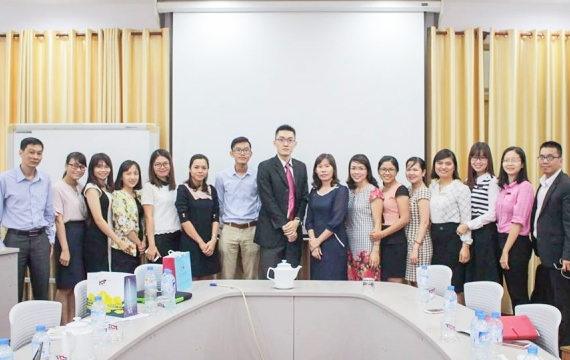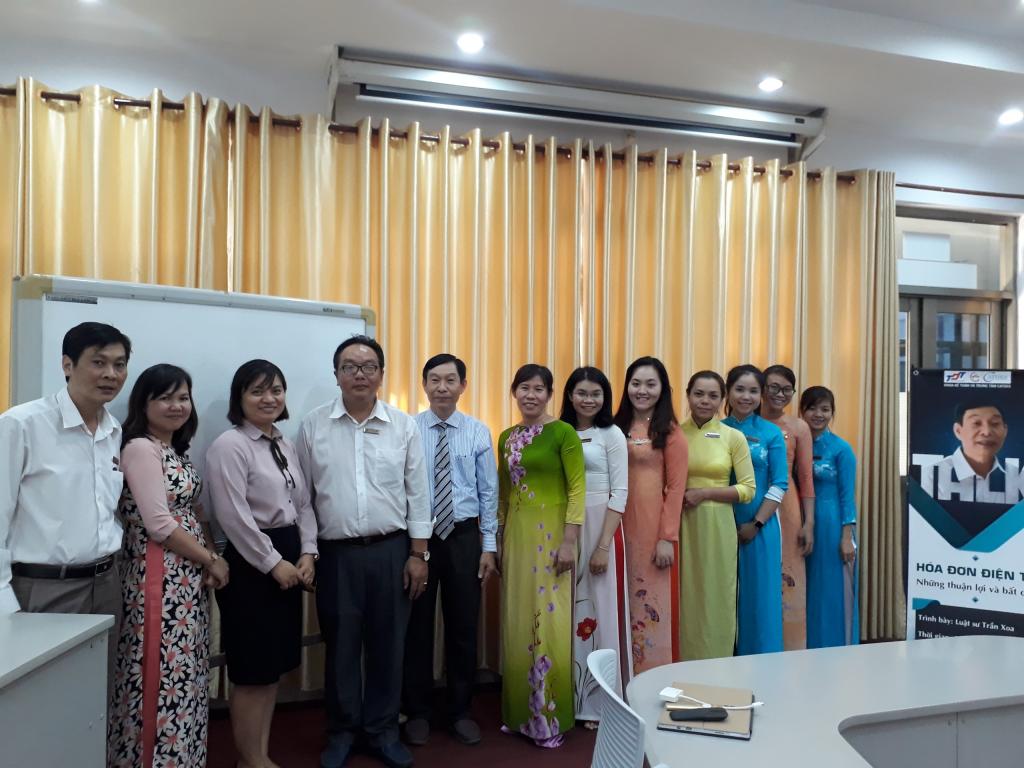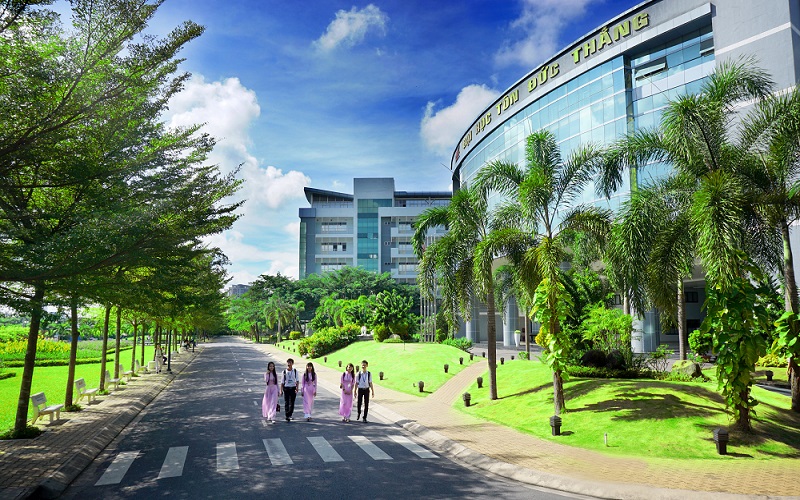RESEARCH ACTIVITIES FOR LECTURERS
Nowadays, any university has two main and most important tasks: academic training and scientific research. . These are two related activities, two basic strategic missions of Ton Duc Thang University (TDTU), in which the active involvement of school faculty in scientific research activities is one of the important - compulsory - measures needed to improve the quality of training, better respond to the increasingly demanding needs of society. For lecturers and academic staff, in addition to the teaching work is always given importance, and that is the condition that it is sufficient to research, that task is set as a compulsory, regular and important criterion for assessing the lecturers' comprehensive capabilities.
With the goal of becoming a top 500 research university in the world in the next two decades, the science and technology activities at TDTU must comply with international practices; specifically:
Basic/academic research: research results must be published in the world's leading prestigious journals listed in the ISI (United States) or Scopus (Netherlands) databases.
Technology research: research results must successfully solve the problems that practice poses; specifically: technology research must have the output of new product designs, inventions, ideas that have been patented by the United States Patent and Trademark Office (USPTO).
Applied Research: The research activity must cooperate with the enterprise to transfer the products from the research activity; and/or have to sign a contract to carry out the research for the business at the cost paid by the business.
Efficiency of investment in science-technology is the top priority. TDTU has developed a system of international customary rules on scientific publications, international publication rankings and salary arrangements for each scientific publication. This system has made scientific research at TDTU very different, but in line with international practice, and highly valued by scientists.
To this end, the TDTU Faculty of Accounting regularly organizes research and academic activities in order to continuously improve both research ability and teaching method for lecturers.
I. Research group
Benchmarking Research Group (BERG) – Head: Associate Professor Qian Long Kweh
II. Journal Club
In order to exchange scientific research activities among faculty members, the faculty of Accounting has organized regular monthly Seminar Journal Club sessions with the aim of reviewing articles related to financial-accounting topics that have been published internationally in ISI/Scopus ranked journals. These papers must meet the requirements of the academic standards set by TDTU and have scientific significance, this research issue is open to faculty in the department of practical research in Vietnam. Consequently, the lecturers can share their insights into the content, research methodologies to access the techniques and learn experience in their research.

Associate Professor Qian Long Kweh’s workshop for sharing research methods for lecturers in the Faculty of Accounting
There are published papers discussed recently:
- Paper discussion of “The Impact of Occupational Community on the Quality of Internal Control”
- Paper discussion of “Corporate social responsibility and financial performance relationship: a review of measurement approaches
- Paper discussion of “Low-cost trends in audit fees and their impact on service quality
- Paper discussion of “The Economic Consequences of IFRS adoption: Evidence from New Zealand
- Paper discussion of “THE FINANCIAL EFFECTS OF TRUMPISM
- Paper discussion of “Corporate governance and firm performance in developing countries: evidence from India
- Paper discussion of “"Earning Quality Across Different Reporting Regimes”
III. Academic Sharing Activity
Academic Sharing Activities (ASA) are scientific work, aimed at improving competence, updating teaching method for lecturers, investigating new useful support tools in teaching and learning activities to contribute to the removal of difficulties in the teaching process and fulfilment of tasks; exchange, update of new, scientific information in the training profession; issues of methodology in instruction, scientific research. ASA helps to approach reality, scientific knowledge to serve life, learn experience from reality to serve the advancement of expertise and improve the effectiveness of teaching.

Lawer Tran Xoa’s presentation of e-invoice
There were recent academic sharing activities of Faculty of Accounting below:
- Discuss and experience in teaching innovation for “Top 100 Program” in the academic year of 2017 – 2018.
- Discuss teaching method and content of the course Simulation Accounting 1.
- Share and discuss of “Revenue” in IFRS 15.
- Discuss of workshop “Approach the Zoom software in teaching activities”
- Learn and discuss about Contractor tax applied to teaching and documentary management efficiently
- Discuss in workshop “E-invoice, pros and cons”
- Discuss of “Google classroom, teaching support tool”

